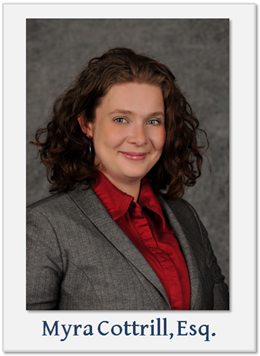December 17, 2015 •
Ask the Experts – Key Components for a Successful Government Affairs Compliance Program

Q. What are the key components for a successful government affairs compliance program?
A. We collaborate closely with our clients to create comprehensive and effective compliance programs. During this process, our clients often request guidance on best internal practices and procedures. Certainly, there is no one-size-fits-all approach—a successful compliance program will adapt seamlessly into the fabric of the corporate structure, making every program unique. Notwithstanding, here are five common components for successful government affairs compliance programs:
1. Centralized Oversight: Great compliance programs have a strong organizational structure with oversight and review vested in one dedicated team of government affairs professionals. All requests for corporate contributions, gifts, and events should be approved by the central team. There should be one employer signatory for all state and local filings—one person who is responsible for oversight and who can attest to the accuracy of registrations and reports. This person typically has oversight of internal team activity, which affords an opportunity for a big picture overview of state and local responsibilities. The responsibility for all company reports should stay within the company—contract lobbyists typically should not be responsible for filing a company’s employer reports. Often, non-lobbyist employee activity, corporate contributions, and/or in-house corporate expenses need to be disclosed on employer reports. Contract lobbyists are not always privy to the necessary reporting information. We recommend working closely with your contract lobbyists to identify necessary reporting information (percentage of retainer dedicated to lobbying efforts, subject matter, etc.) and reviewing draft disclosure reports against company invoices to ensure accuracy in reporting.
2. Recurring Training Opportunities & Assessments: Providing adequate training opportunities for your team is necessary to ensure compliance. Ideally, this should be done on an annual basis, and completion should be required and documented. State and local requirements change quickly, as do team members. This is especially true for sales and procurement executives. We recommend a general training session or refresher course and individual follow-up to assess registration and/or reporting needs.
3. Broad Outreach Across Lines of Business and Departments: Contact with state and local government officials is usually not isolated to only the government affairs team—it can happen anywhere in your corporation, from the executive level to sales. A strong compliance program allows you to reach across lines of business and departments to ensure anyone engaging officials on behalf of your company is staying compliant with relevant rules and restrictions.
4. Clear Policies for Employee Engagement: Can you identify clear internal gift and contribution policies? Your compliance program should utilize and strengthen your existing gift, ethics, and corporate contribution policies. Ensure these policies are specific. For example, what employee activity triggers the policy? What activities are prohibited? What activities require pre-approval by your team? A well-structured compliance program will disseminate these policies companywide, and include a clear roadmap for employee compliance.
5. Open Door Policies and Procedures: In sum, you must make it easy to comply. If it’s too difficult to access information or request approval, your employees simply won’t do it. Is there an intranet, form, or a ticket system you can utilize to ensure your employees can easily access guidance? What resources do you provide to your employees? Is there a company contact employees can reach to discuss questions or concerns? Further, there must be a fast turn-around time for questions and guidance. The longer something sits in a queue, the higher the risk for noncompliance.
In 2016, it will be more important than ever to keep a close watch on your compliance program. Having a solid program in place will help when questions arise from the media, stockholders, and activists.
You can directly submit questions for this feature, and we will select those most appropriate and answer them here. Send your questions to: experts@stateandfed.com.
(We are always available to answer questions from clients that are specific to your needs, and we encourage you to continue to call or e-mail us with questions about your particular company or organization. As always, we will confidentially and directly provide answers or information you need.) Our replies to your questions are not legal advice. Instead, these replies represent our analysis of laws, rules, and regulations.
State and Federal Communications, Inc. provides research and consulting services for government relations professionals on lobbying laws, procurement lobbying laws, political contribution laws in the United States and Canada. Learn more by visiting stateandfed.com.

